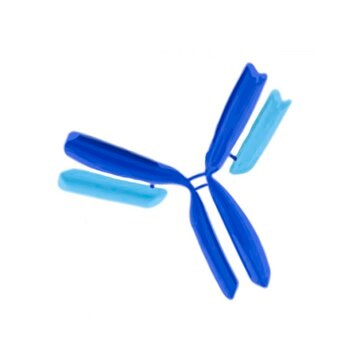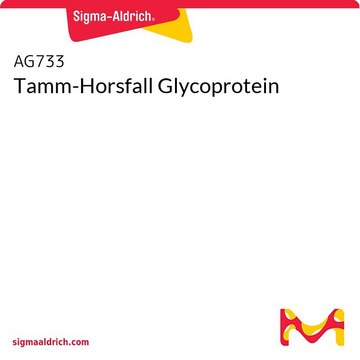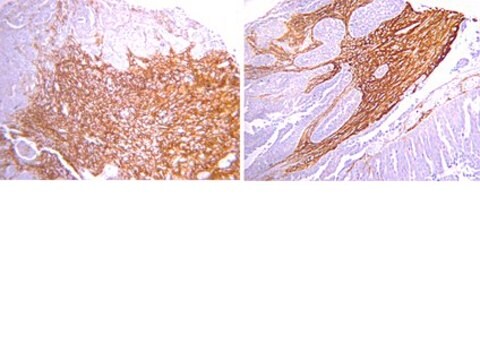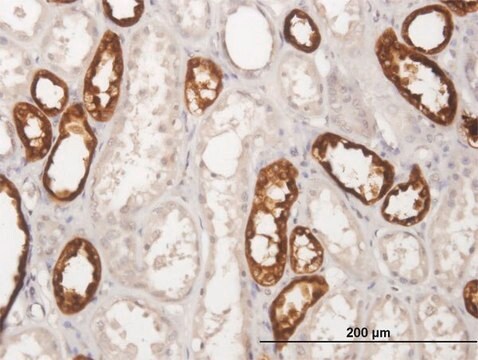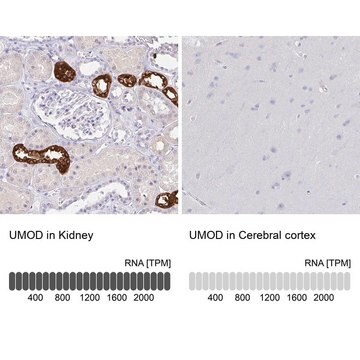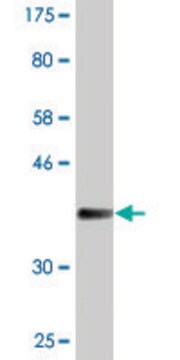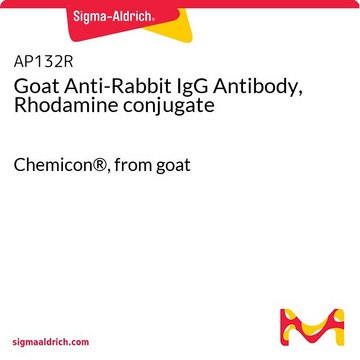ABS2215
Anti-Uromodulin/THP
Synonym(s):
Tamm-Horsfall urinary glycoprotein;THP
About This Item
Recommended Products
biological source
rabbit
Quality Level
antibody form
purified antibody
antibody product type
primary antibodies
mol wt
calculated mol wt 69.76 kDa
observed mol wt ~105 kDa
purified by
affinity chromatography
species reactivity
human
packaging
antibody small pack of 100 μg
technique(s)
immunohistochemistry: suitable
western blot: suitable
isotype
IgGκ
epitope sequence
C-terminal
Protein ID accession no.
UniProt accession no.
storage temp.
2-8°C
target post-translational modification
unmodified
Gene Information
human ... UMOD(7369)
General description
Specificity
Immunogen
Application
Evaluated by Western Blotting in Human kidney tissue lysate.
Western Blotting Analysis: A 1:1,000 dilution of this antibody detected Uromodulin/THP in Human kidney tissue lysate.
Tested applications
Immunohistochemistry (Paraffin) Analysis: A 1:1,000 dilution from a representative lot detected Uromodulin/THP in human kidney tissue sections.
Note: Actual optimal working dilutions must be determined by end user as specimens, and experimental conditions may vary with the end user
Physical form
Reconstitution
Storage and Stability
Other Notes
Disclaimer
Not finding the right product?
Try our Product Selector Tool.
Storage Class Code
12 - Non Combustible Liquids
WGK
WGK 2
Flash Point(F)
Not applicable
Flash Point(C)
Not applicable
Regulatory Listings
Regulatory Listings are mainly provided for chemical products. Only limited information can be provided here for non-chemical products. No entry means none of the components are listed. It is the user’s obligation to ensure the safe and legal use of the product.
JAN Code
ABS2215-25UG:
ABS2215-100UG:
Certificates of Analysis (COA)
Search for Certificates of Analysis (COA) by entering the products Lot/Batch Number. Lot and Batch Numbers can be found on a product’s label following the words ‘Lot’ or ‘Batch’.
Already Own This Product?
Find documentation for the products that you have recently purchased in the Document Library.
Our team of scientists has experience in all areas of research including Life Science, Material Science, Chemical Synthesis, Chromatography, Analytical and many others.
Contact Technical Service